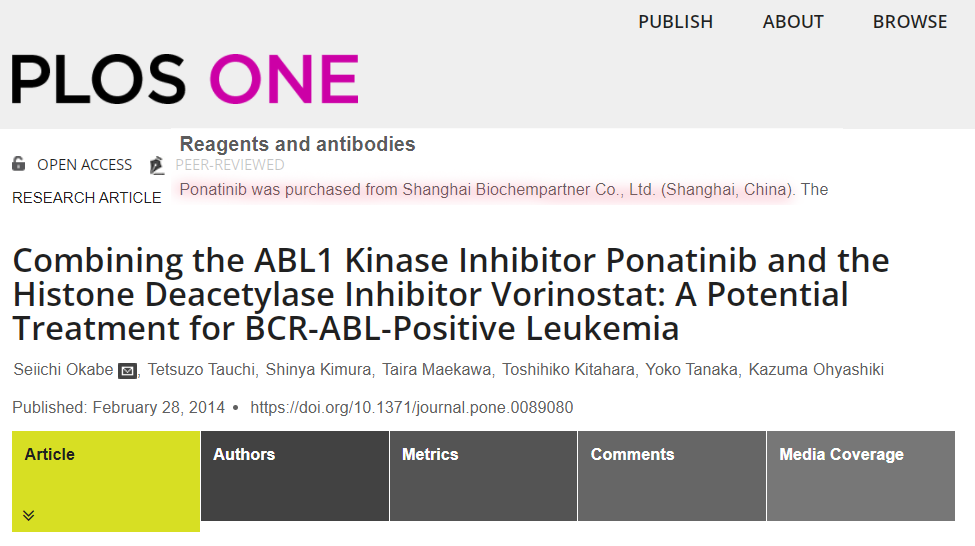Combining the ABL1 Kinase Inhibitor Ponatinib and the Histone Deacetylase Inhibitor Vorinostat: A Potential Treatment for BCR-ABL-Positive Leukemia

Abstract Resistance to imatinib (Gleevec®) in cancer cells is frequently because of acquired point mutations in the kinase domain of BCR-ABL. Ponatinib, also known as AP24534, is an oral multi-targeted tyrosine kinase inhibitor (TKI), and it has been investigated in a pivotal phase 2 clinical trial. The histone deacetylase inhibitor vorinostat (suberoylanilide hydroxamic acid) has been evaluated for its significant clinical activity in hematological malignancies. Thus, treatments combining ABL TKIs with additional drugs may be a promising strategy in the treatment of leukemia. In the current study, we analyzed the efficacy of ponatinib and vorinostat treatment by using BCR-ABL-positive cell lines. Treatment with ponatinib for 72 h inhibited cell growth and induced apoptosis in K562 cells in a dose-dependent manner. We found that ponatinib potently inhibited the growth of Ba/F3 cells ectopically expressing BCR-ABL T315I mutation. Upon BCR-ABL phosphorylation, Crk-L was decreased, and poly (ADP-ribose) polymerase (PARP) was activated in a dose-dependent manner. Combined treatment of Ba/F3 T315I mutant cells with vorinostat and ponatinib resulted in significantly increased cytotoxicity. Additionally, the intracellular signaling of ponatinib and vorinostat was examined. Caspase 3 and PARP activation increased after combination treatment with ponatinib and vorinostat. Moreover, an increase in the phosphorylation levels of γH2A.X was observed. Previously established ponatinib-resistant Ba/F3 cells were also resistant to imatinib, nilotinib, and dasatinib. We investigated the difference in the efficacy of ponatinib and vorinostat by using ponatinib-resistant Ba/F3 cells. Combined treatment of ponatinib-resistant cells with ponatinib and vorinostat caused a significant increase in cytotoxicity. Thus, combined administration of ponatinib and vorinostat may be a powerful strategy against BCR-ABL mutant cells and could enhance the cytotoxic effects of ponatinib in those BCR-ABL mutant cells.




